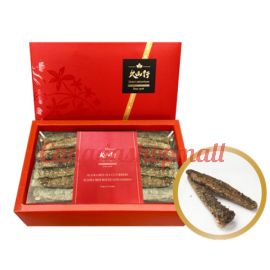We use cookies to make your experience better. To comply with the new e-Privacy directive, we need to ask for your consent to set the cookies. Learn more.
A.Vogel Ginkgo Ginkgoforce 50ml
$100.00
In stock
SKU
A.Vogel Ginkgo Ginkgoforce 50ml
A.Vogel Ginkgo Ginkgoforce 50ml—DIN-HM:80030239
Fresh Ginkgo biloba extract
A.Vogel Ginkgo Ginkgoforce®
Ginkgo biloba is a powerful antioxidant.
No toxic solvents have been used to extract all the active ingredients of the fresh Ginkgo biloba leaf for Ginkgoforce.
Efficacy clinically proven
Sugar-, gluten- and lactose-free
The Ginkgo extract contained in A.Vogel Ginkgo Ginkgoforce® is not standardized on one active principle since the synergy of all the components is necessary for optimal efficacy. Ginkgoforce thus contains all the active principles of the Ginkgo leaf: flavonoids (often called ginkolides or bilobides), terpenes, carotenes, etc.
Composition
Each mL contains:
Medicinal ingredient:
Fresh wild Ginkgo (Ginkgo biloba) leaf tincture ...1X.
Non-medicinal ingredient:
1 mL of tincture contains 0.62 mL alcohol (ethanol).
1 mL = 33 drops. Dropper included.
Dosage
Adults: take 15-20 drops in a small amount of water, 3 times daily, 15 minutes before meals. Salivate before swallowing.
Historical Overview
In traditional Chinese pharmacopoeia, Ginkgo dried fruit (Yin Xing) and leaf (Yin Xing Ye) were used mainly to treat asthma and phlegm problems.(1) In America, Ginkgo became popular after several studies demonstrated its effect on dementia (Alzheimer) and memory loss associated with arteriosclerosis.
Actions and pharmacology
Ginkgo is known for its vasodilator, antioxidant, neuroprotective and PAF (platelet-activating factor) inhibiting properties. Ginkgo extract promotes increased blood flow to extremities, which explains its usefulness in vascular occlusive diseases such as intermittent claudication (Raynaud’s disease). The same mechanism of action could explain its effect on memory and mental faculties. This vasodilator activity increases with age, providing an optimal action on arteriosclerosis and blood flow in elderly patients. In young patients whose arteries still have their elasticity, Ginkgo has a much smaller effect on mental faculties.
Ginkgo is a powerful antioxidant, as effective as Grape seed extract.(2)
One in vitro study conducted at the McGill University in Montreal demonstrated the ability of a Ginkgo extract to protect neurons from the action of known neurotoxic substances. This ability has been confirmed in numerous in vitro and clinical studies.(4)
Ginkgo inhibits PAF (platelet-activating factor), which is involved in the inflammatory aspect of asthma. This activity explains its use in traditional Chinese medicine to treat asthma(3) as well as its action on blood coagulation (by reducing platelet aggregation, it “fluidizes” blood).
The German Commission E acknowledges its benefits in cases of:
-symptomatic treatment of organic brain syndrome and demential syndromes with the following symptoms: memory deficits, disturbances in concentration, depressive emotional condition, dizziness, tinnitus and headache ;
-improvement of pain-free walking distance in peripheral arterial occlusive disease (intermittent claudication) and in cases of
-vertigo and tinnitus (ringing in the ear) of vascular origin.
The Ginkgo extract contained in Ginkgoforce is not standardized on one active principle since the synergy of all the components is necessary for optimal efficacy. Ginkgoforce thus contains all the active principles of the Ginkgo leaf: flavonoids (often called ginkolides or bilobides), terpenes, carotenes, etc.
Scientific studies
One double-blind, randomized clinical study evaluated the efficacy of Ginkgoforce in 241 patients between the age of 55-85. Patients were assigned to 3 treatment groups receiving either 20 drops 3 times/day (recommended dosage), 40 drops 3 times/day or a placebo, over a 6-month period. Subjects from the two groups receiving Ginkgoforce had a significant subjective and objective improvement (as measured by three different tests) of their cerebral function as compared to the placebo. The difference between the two groups receiving Ginkgoforce was insignificant. The authors concluded: “Ginkgoforce is capable of improving the cerebral function and seems very well indicated for the treatment of age-related memory problems. (…) for this drug, the 20 drops 3 times/day dosage should be considered as optimal for long term treatment.”(5)
Precautions, contraindications and interactions
Consult a healthcare practitioner prior to use if you are pregnant or breastfeeding.
Avoid taking in case of allergy to any of the ingredients in the product.
Consult a healthcare practitioner if symptoms persist or worsen.
Do not use if safety seal is broken. Keep out of reach of children.
Ginkgo interacts with anticoagulants (Coumadin®) and anti-inflammatory agents (aspirin). Associating Ginkgo and these drugs could increase the risk of hemorrhage.
Some transient side effects have been reported depending on the dose and formulation: nausea, abdominal heaviness, vertigo, headache, fatigue and nose bleeding. All these effects cease upon stopping or reducing the herb dosage.
It is highly recommended that people with coagulation problems (phlebitis, etc.) see a healthcare professional before taking Ginkgoforce.
References
1-Guillaume G, Mach-Chieu. Pharmacopée et Médecine Traditionnelle Chinoise. Éditions DésIris /Présence 1987. France.
2-Hibatallah J, Carduner C, Poelman MC. In-vivo and in-vitro assessment of the free-radical-scavenger activity of Ginkgo flavone glycosides at high concentrations. J Pharm Pharmacol 1999 Dec;51(12):1435-40
3-Li MH, Zhang HL, Yang BY. [Effects of Ginkgo leave concentrated oral liquor in treating asthma]. (article en chinois). Zhongguo Zhong Xi Yi Jie He Za Zhi 1997 Apr;17(4):216-8
4- Sloley BD, Urichuk LJ, Morley P et al. Identification of kaempferol as a monoamine oxidase inhibitor and potential neuroprotectant in extracts of Ginkgo Biloba leaves. J Pharm Pharmacol 2000 Apr;52(4):451-9.
5-Degenring FH, Brautigam MRH. Ginkgoforce pour le traitement des troubles de la mémoire liés à l'âge. Schweiz Zschr GansheitsMedizin 1999;11(5):252-257.
6-The Complete German Commission E Monographs, Therapeutic Guide to Herbal Medicines. Blumenthal M et al 1998. American Botanical Council, 6200 Manor Rd, Austin, Texas, 78723.
Write Your Own Review























